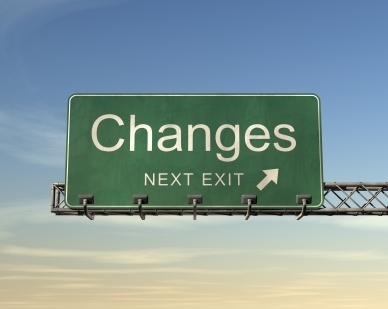"Change" requires DOING something different
Do you ever find yourself in a situation that seems like a  never-ending circular argument? Sometimes it seems to me that our schools are stuck in a permanent state of "Who's on First?"
never-ending circular argument? Sometimes it seems to me that our schools are stuck in a permanent state of "Who's on First?"
There is so much talk about how schools want to improve their present circumstances. They want their students to get better grades, achieve more in reading/math/science/technology. They want teachers to be happier and more productive. They want bullying or other anti-social behavior to diminish. They want parents to be more involved and engaged in their children's education. The schools are full of wants and objectives…but what do they do with that?
It's in the "do" that things fall apart. You see, in order for things to be different in the schools, something has to change. And, we all know that change is VERY hard. Even positive change. And, for many schools, districts or administrations, change is virtually impossible. Here's what happens when you suggest change to improve their present circumstances:
Before I get too far down the road here with generalizations (anyone who has read this blog for a while KNOWS I hate rubber-stamping everyone with the same label), let me just say that I KNOW this isn't true of all schools, so please don't be offended if you are one of the enlightened and inspired ones who is honestly striving to make a difference. But this blog is directed at those for whom the following conditions ring true.
Well, we'd like to do something different, but we're so strapped for budget this year that we can't afford to do anything. (Response: ok…well, what if I showed you how to do it with no extra expense?)
Well, we'd like to do something different, but our teachers are so busy already, they can't take on anything new (Response: I understand. What if we showed you that it doesn't take any extra time, and, in fact saves you time overall?)
Well, we'd like to do something different, we know we need to, but we're having management/contract/review issues that are taking up a lot of our cycles right now.
Well, we know we need to do something — we have all these problems — but our curriculum review cycle for this type of program doesn't come up for another 2 years. We'll likely reconsider at that time. (Internal response: so you're just going to continue to put up with the problems for the next 3 years until you get something new in place?)
We'd really like to do something different, but we're constrained by district-approved lists of programs (and, oh, by the way, you can't get on the district-approved list until it's been piloted in one or more individual schools in the district, but the schools won't pilot you because you're not on "the list.")
I know this is all part of doing business with bureaucracy. But, while the schools/districts/administrators wring their hands talking about how they are committed to making things better and solving their problems, they seem to be paralyzed when it comes to taking action or consider new approaches. And, our kids' education, our teachers' talent, and our families and communities are suffering as a result.
I know I wrote about this the other day in a slightly different vein, but it does appear somedays that the paralysis is terminal. Newton said in one of his famous laws that "Bodies at rest tend to remain at rest unless acted upon by an outside force." In the case of the schools, however, the outside force can't even budge the body at rest. It's like you are trying to save a drowning man, and not only will he not accept the life-preserver, but he continues to throw it back at you each time you toss it out.
In the world of social-emotional learning (or social skills, if you prefer), these are the challenges we're dealing with. Increasing bodies of research prove that this is not only a needed aspect of education, but it also makes academic education so much more effective. Effective social skills education has no downside — it increases teacher productivity in the classroom, raises student time-on-task, decreases discipline issues, helps students learn more and do better on academic subjects, improves the schools culture, reduces absenteeism, makes more effective use of taxpayer dollars, and builds students' school-to-job skills. It's the fastest way to make real change happen in schools and it provides positive effects on all aspects of education. And schools say they know they NEED it. But, taking the next step toward implementation is like asking them to spin straw into gold.
So, while it seems that the schools desperately want change, the "yeah, buts…" stand in the way. Change must, therefore, happen by magic, I suppose. Because if it requires actually doing something, there's always a reason for why now is not the time or it's someone else's job. Here we are, at the end of School Year 2010-2011 and it looks much like it did last year. How many schools will start 2011-2012 hopeful that this year things will be different? Yet, how can it be when nothing has changed?
Filed under: Education Policy, Education Reform, Social Skills and Character Tagged: change in education, improving education, increasing test scores, school paralysis











